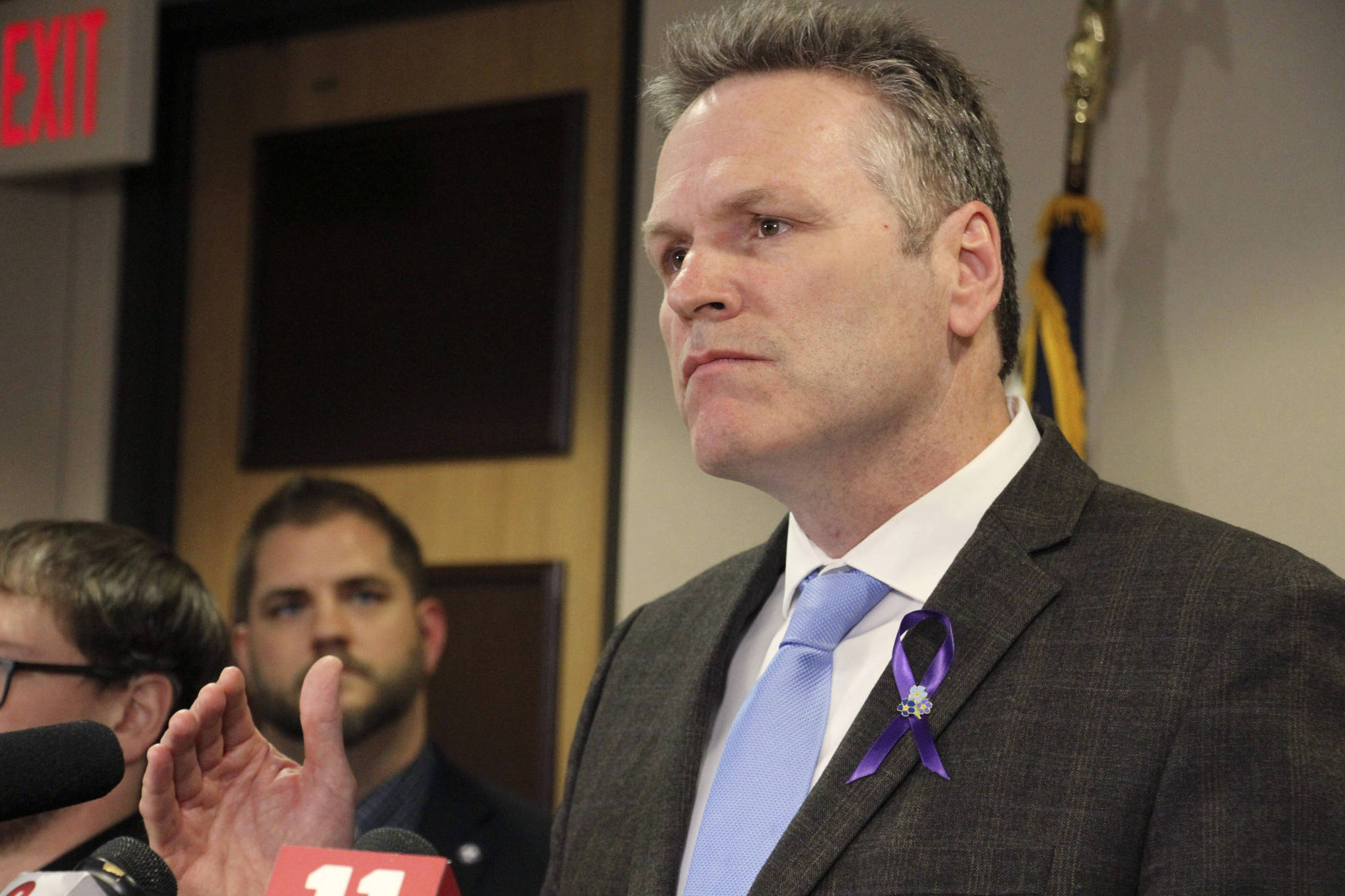Gov. Mike Dunleavy faces criticism from across the political spectrum for his handling of COVID-19, from those who think he’s not doing enough to address rising case counts to those who think he’s been overreaching in his approach.
He issued a new disaster declaration, which took effect Monday, despite questions from some lawmakers about its legal underpinnings. He has declined requests to issue a statewide mask mandate but said he supports communities that have them. He has urged calm in asking Alaskans to take precautions but last week, amid what he called an escalating crisis, issued his call for residents “to sacrifice a little more by changing your daily routines” via the state’s emergency alert system.
Dunleavy’s spokesperson, Jeff Turner, said the Republican governor “felt compelled to reach out to Alaskans in the most direct way possible to urge action to keep Alaskans safe.”
For some, it landed with a thud. Vince Beltrami, president of the Alaska AFL-CIO, said it was attention-getting but lacked substance.
“It just irritates me that he uses a resource like this, for earthquake-type announcements, to just say more of the same,” he said.
Dunleavy, under threat of an ongoing recall effort fueled last year by proposed budget cuts, in an appeal to Alaskans earlier this month said he, “like you,” is tired of the pandemic and its politicization and doesn’t “like to be told what to do.”
“I consider us to be the freest state in the country, in so many respects. And I’m forever grateful for that. But this pandemic doesn’t care about any of that stuff,” he said.
In an interview with The Associated Press, Dunleavy said he tries to get “as many data points as possible” in making decisions on how to address COVID-19.
“I talk to the medical community. I talk to the scientific community, the business community. I talk with governors,” he said. ” … Everyone is looking for that one place that’s doing it, quote, right, and quite honestly it doesn’t exist.”
“You do the best you can,” he said. “You try to get as much information as possible.”
He said his job as governor is to make sure Alaska’s public health, law enforcement and other systems are intact. The state has worked to address issues such as testing, hospital beds and protective equipment but a challenge more recently has been that the virus is “dousing us now in such numbers” that it’s affecting health care workers and members of the armed services and law enforcement, he said.
The state health department has said hospital capacity and staffing are concerns as hospitalizations for COVID-19 rise. Since the start of the pandemic, the department has reported 23874 confirmed resident cases. Of those, about 16,600 are considered active cases. The department says there have been 99 deaths related to COVID-19.
For most people, the coronavirus causes mild or moderate symptoms. For some, especially older adults and people with existing health problems, it can cause more severe illness and death.
Sen. David Wilson, a Republican from Wasilla, said Dunleavy has done fairly well in his handling of the virus. He said there’s no need to live in fear but “we still have to take universal precautions,” and he thinks the Dunleavy administration’s messaging has been consistent.
He said he did not see how a statewide mask mandate could be enforced.
But Rep. Zack Fields, an Anchorage Democrat, said if Dunleavy were to issue a statewide mandate it would “depoliticize masks among that fringe group that has been most resistant to wearing them.” Masks are to be worn at state facilities, and some communities mandate masks in certain settings.
The administration also could do more to help people understand transmission risks indoors, Fields said.
Eagle River Republican Sen. Lora Reinbold has been a prominent critic of Dunleavy, saying in a recent Facebook post that he “wants us to dramatically change our lives” to help frontline workers who “have supposedly been gearing up to take care of patients all year.” She has accused administration officials of fear mongering.
Dunleavy announced earlier this month his plans to issue a new disaster declaration when the one approved by lawmakers expired Sunday. Legislative leaders indicated that lawmakers did not have the votes to call themselves into a special session but urged Dunleavy to exercise his power to call a special session. The new declaration is intended to last 30 days.
Dunleavy said having the recent elections out of the way could allow for greater focus on the issue of a possible special session. “We’ll engage folks and see what the temperature is in having people go down to Juneau sooner than later to deal with this,” he said.


